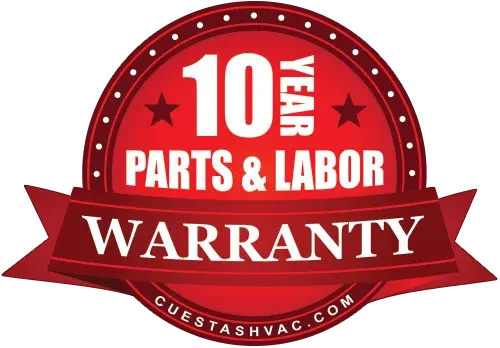Understanding HVAC Warranties: Protecting Your Investment
- Jean Swafford
- Aug 19, 2024
- 2 min read

When investing in an HVAC system, understanding the associated warranties is crucial to ensure that your investment is protected. A comprehensive warranty can save you considerable money on repairs and replacements and provide peace of mind about your system's longevity and performance. This blog post explores the importance of HVAC warranties, what they typically cover, and tips for maximizing their benefits.
1. Why HVAC Warranties are Important
Risk Mitigation: HVAC systems are significant investments, and warranties protect you from unexpected costs arising from defects or premature failures.
Longevity and Performance Assurance: A warranty often reflects the manufacturer's confidence in the durability and performance of their products. It ensures that, in the event of a system failure, you are covered for repairs or replacements.
Value Addition: Warranties can add value to your home by providing future buyers with reassurance about the HVAC system's reliability and potential repair costs.
2. What Do HVAC Warranties Typically Cover?
Parts Warranty: This is the most common type of warranty and covers the replacement of specific parts of the HVAC system that fail due to manufacturing defects. The duration can vary significantly depending on the manufacturer and the specific component.
Labor Warranty: Some warranties also cover the cost of labor associated with repairing or replacing defective parts. Labor warranties are particularly valuable but often last for a shorter period than parts warranties.
Extended Warranties: Offered either by manufacturers or third-party providers, extended warranties can prolong the coverage beyond the standard term. These might include both parts and labor.
Lifetime Warranty: Some components, such as heat exchangers in furnaces, may come with a lifetime warranty, reflecting their expected long service life.
3. Limitations and Exclusions
Installation Errors: Warranties generally do not cover issues related to improper installation. Ensuring that your HVAC system is installed by certified professionals is crucial.
Maintenance Requirements: Most warranties require regular maintenance to remain valid. Neglecting routine maintenance can void the warranty.
Transferability: Some warranties are transferable to new homeowners, while others are not. Transferable warranties can increase the value of your home if you plan to sell.
4. How to Maximize the Benefits of HVAC Warranties
Register the Warranty: Many manufacturers require you to register the product within a certain period after installation to activate the warranty.
Understand the Terms and Conditions: Read the warranty terms carefully to understand what is covered and for how long. Note any maintenance obligations and adhere to them.
Keep Good Records: Maintain detailed records of installation, repairs, regular maintenance, and any interactions with service technicians. This documentation can be crucial if you need to file a warranty claim.
Use Authorized Service Providers: For repairs and maintenance, use professionals who are authorized by the manufacturer to ensure that the work is done according to warranty standards.
5. Conclusion
An HVAC warranty is more than just a document; it's a critical component of your investment in home comfort. By understanding and managing your HVAC warranty effectively, you can protect yourself against unforeseen costs and ensure your system operates efficiently for years to come. Always choose quality equipment from reputable manufacturers and work with skilled, certified installers to make the most of the warranty coverage offered.
4


Comments